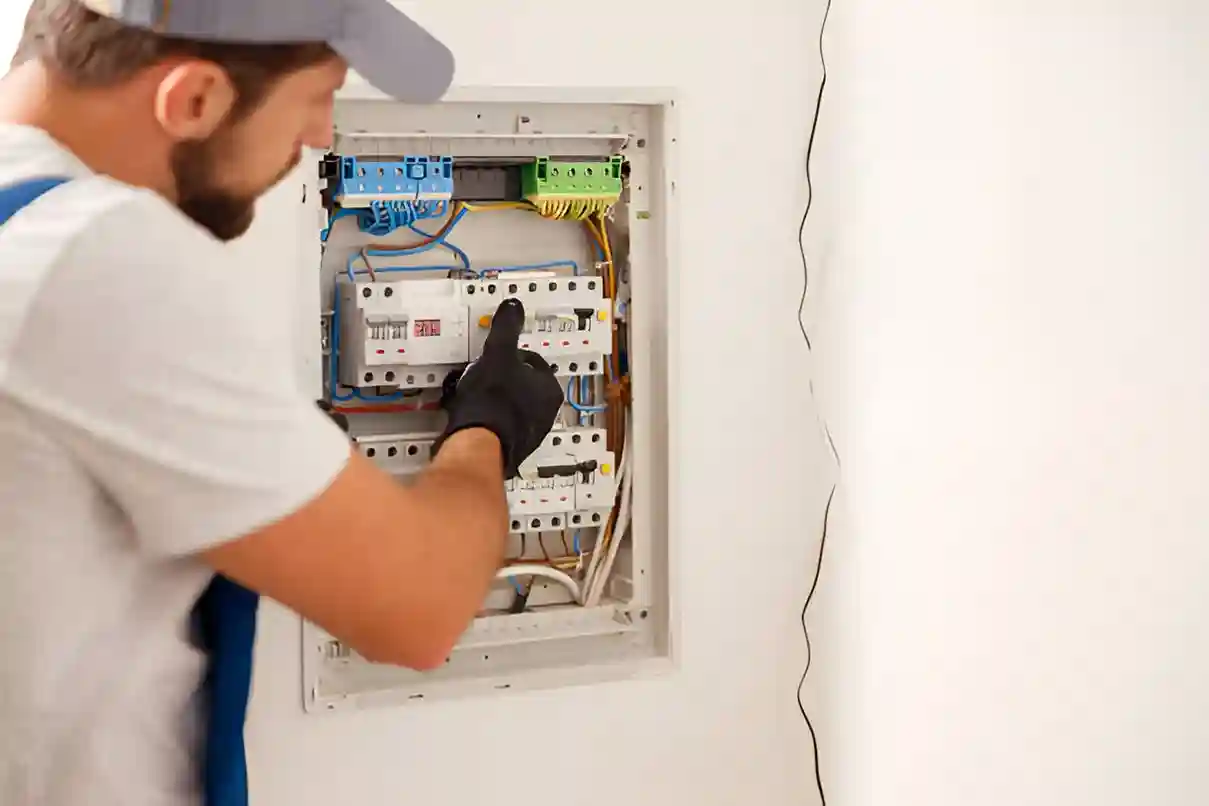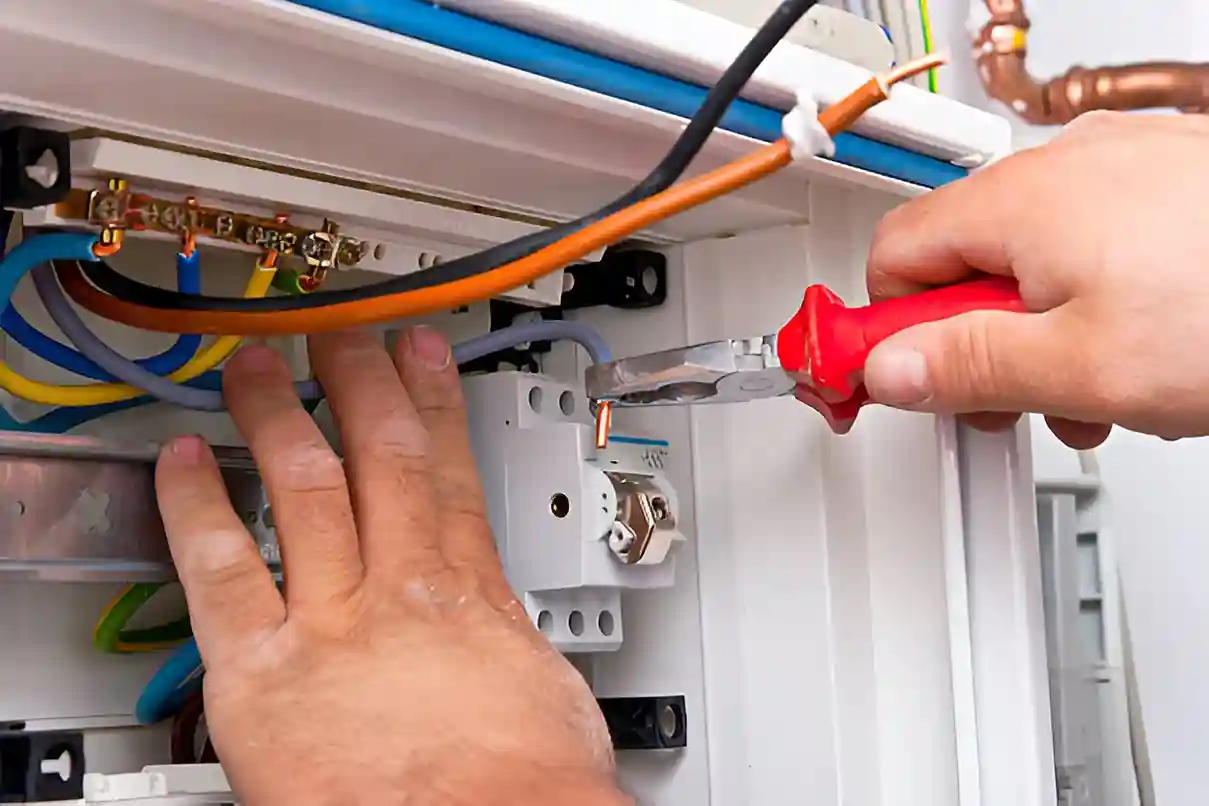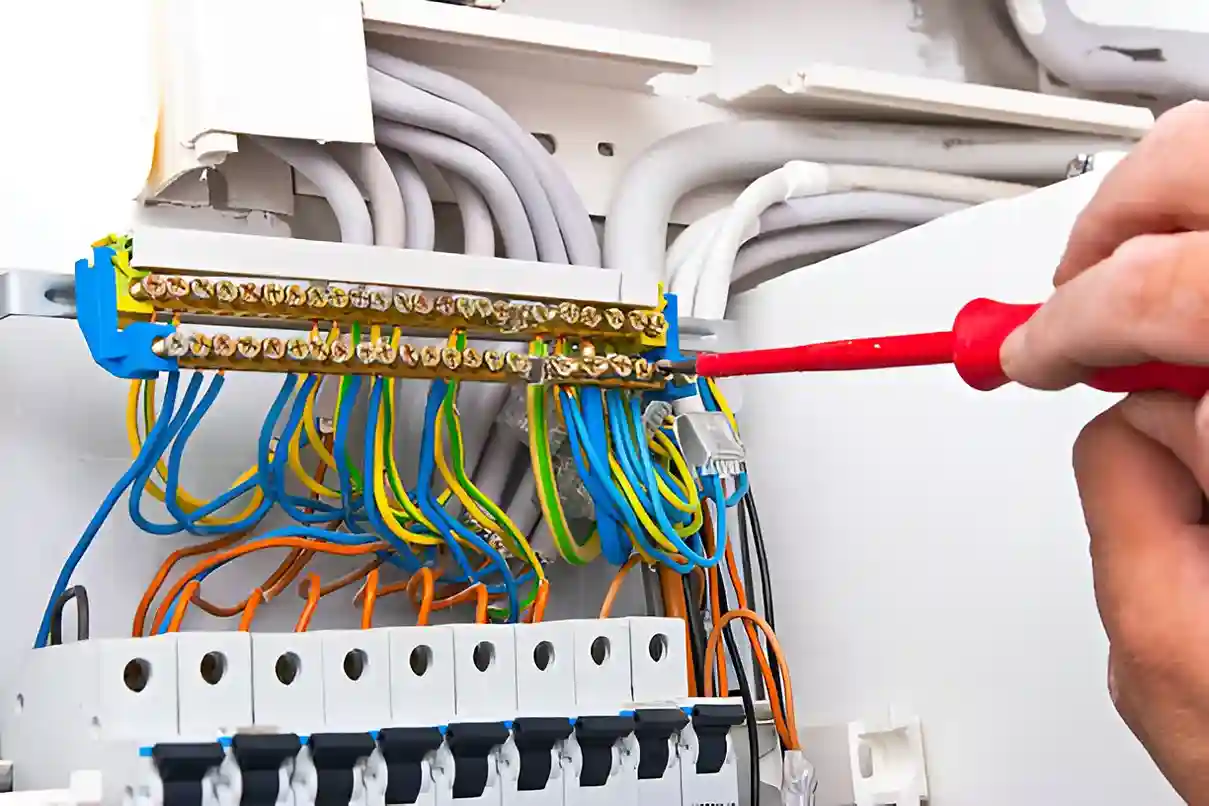
Replacing an old fuse box isn’t just a home upgrade; it’s an important step in ensuring your property is safe, efficient, and ready for modern electrical demands. In 2025, the cost of installing new fuse box can range from approximately £500 to £1,500, depending on different factors, including the type of unit, labour, location, and if additional work is required.
For homeowners facing this decision, it’s essential to consider not just the cost but also the long-term benefits and compliance requirements. Let’s explore everything you need to know, including when a fuse box needs to be replaced, what the replacement process involves, and how to stay in compliance with safety regulations.
Why Replace Your Fuse Box?
Old or faulty fuse boxes can be a significant source of electrical problems. If you’re noticing frequent tripped circuits, flickering lights, or blown fuses, it’s a strong sign that your current setup is struggling to meet your home’s power demands.
There are a few key reasons why you should upgrade your fuse box;
- Safety Risks: Outdated systems may lack proper circuit protection, increasing the risk of electric shocks or fires.
- Increased Power Demand: Modern homes often feature more appliances, devices, and even electric vehicles that draw more energy than older systems were built for.
- Smart Home Compatibility: New fuse boxes and brilliant units can monitor usage, detect faults early, and offer energy-saving features.
- Property Value: Upgraded electrics are a selling point for buyers and can make your home more marketable.
Factors That Influence the Cost of installing new fuse box
The overall cost of installing new fuse box varies depending on several factors. Here’s what typically drives the price:
Type of Fuse Box
- Standard consumer units are the most affordable.
- Smart fuse boxes come at a premium due to features like app connectivity and real-time diagnostics.
Labour and Location
- Electricians in London or the South East may charge higher rates than those in rural areas.
- Experienced professionals often cost more but provide greater reliability and assurance.
Circuit or Wiring Upgrades
- If your home’s wiring is outdated or damaged, you may need to pay for rewiring or circuit upgrades, which can significantly increase the overall cost.
Legal Compliance and Certification
- UK law requires that all domestic electrical work follow Part P of the Building Regulations. Depending on your council, you may also need to pay for inspection and certification, which can add to the final bill.
How Much Should You Expect to Pay?
On average, the cost of installing new fuse box in the UK ranges between £500 and £1,500. Here’s a rough breakdown:
| Type of Work | Estimated Cost |
|---|---|
| Standard Fuse Box Replacement | £500 – £1500 |
| Smart RCBO Consumer Unit | £800 – £1,500 |
Landlord Safety Certification provides the most reliable service at affordable prices across London.
What Are the Benefits of Upgrading Your Fuse Box?
Aside from staying compliant with regulations, installing a new fuse box brings several benefits:
Enhanced Safety
Modern fuse boxes feature Miniature Circuit Breakers (MCBs) and Residual Current Devices (RCDs) that quickly shut off power in dangerous situations, reducing the risk of fires or electric shocks.
Better Energy Management
Smart fuse boxes can monitor the amount of energy each circuit uses, helping you identify where you’re using the most electricity and where you could save.
Future-Proofing
If you’re planning to install EV chargers, solar panels, or smart tech, a new fuse box ensures your electrical system can support these modern features.
Boosted Property Value
Potential buyers are increasingly looking for homes with updated, regulation-compliant electrical systems, making this a wise investment if you plan to sell in the future.
Role of Certified Engineers in Fuse Box Installation
You can’t (and shouldn’t) attempt this job yourself. Only qualified, registered electricians are permitted to install a new fuse box in the UK legally. Reputable professionals will:
- Carry out a thorough inspection of your existing system
- Identify any outdated or unsafe wiring
- Offer advice on the most suitable fuse box for your home
- Provide an Electrical Installation Certificate upon completion of the job.
Working with certified electricians ensures the job is done safely, legally, and in line with BS 7671 Wiring Regulations.

What Happens During the Installation?
Here’s what the process typically looks like:
- Assessment: The electrician evaluates your current fuse box, wiring, and circuits.
- Power Shut-off: Electricity to the property is turned off during the changeover.
- Removal and Installation: The old unit is removed, and the new fuse box is installed.
- Testing: Each circuit is tested to ensure safety and proper function.
- Certification: Once complete, a certificate is issued to confirm compliance.
Most installations take between 2 and 6 hours, depending on the complexity of the system and whether other work (like rewiring) is needed.
Legal Requirements: Why Certification Matters
All fuse box installations must meet UK electrical safety standards, including:
- Part P of the Building Regulations (which covers all electrical installations in domestic properties)
- BS 7671 (18th Edition Wiring Regulations)
Failing to meet these requirements can:
- Invalidate your home insurance
- Cause problems when selling your property
- Make your face liable for legal consequences in the event of an electrical accident
Old Fuse Boxes vs. Modern Consumer Units: What’s the Difference?
| Feature | Old Fuse Box | Modern Consumer Unit |
|---|---|---|
| Circuit Protection | Fuses (rewirable) | MCBs & RCDs |
| Safety | Low | High |
| Capacity | Limited | Supports more circuits |
| Smart Features | None | Optional (in smart units) |
Upgrading from an old fuse box to a consumer unit is more than just a technological upgrade; it’s about making your home safer, more efficient, and future-ready.
How Often Should You Replace or Upgrade a Fuse Box?
There’s no hard-and-fast expiry date for a fuse box, but most experts recommend evaluating your system every 1 to 5 years. You might need to upgrade earlier if:
- You’re doing major renovations
- You’re installing energy-intensive appliances
- You have frequent electrical issues
- Your system lacks RCD protection
Regular inspections by a qualified electrician will help you stay ahead of any safety concerns.

How to Spot a Faulty or Outdated Fuse Box
Are you unsure if your current fuse box is due for replacement? Watch out for these signs:
- Flickering lights or appliances
- A burning smell near the unit
- Breakers that trip often
- Buzzing or humming noises
- Lack of RCD protection
If you’re experiencing any of these issues, call an electrician immediately.
Frequently asked questions.
Final Thoughts: Selecting the Right Investments for 2025
Replacing your fuse box might not be the most glamorous home upgrade, but it’s one of the most crucial. Considering the expense of a new fuse box, it’s a small investment for lasting safety and peace of mind. As modern homes increasingly rely on safe and efficient electrical systems, upgrading your consumer unit not only ensures compliance with current regulations but also helps future-proof your property and enhance overall security.
From understanding pricing to choosing the right electrician, every step matters. Take the time to assess your needs, get professional advice, and ensure that your new fuse box is installed to the highest standards.








